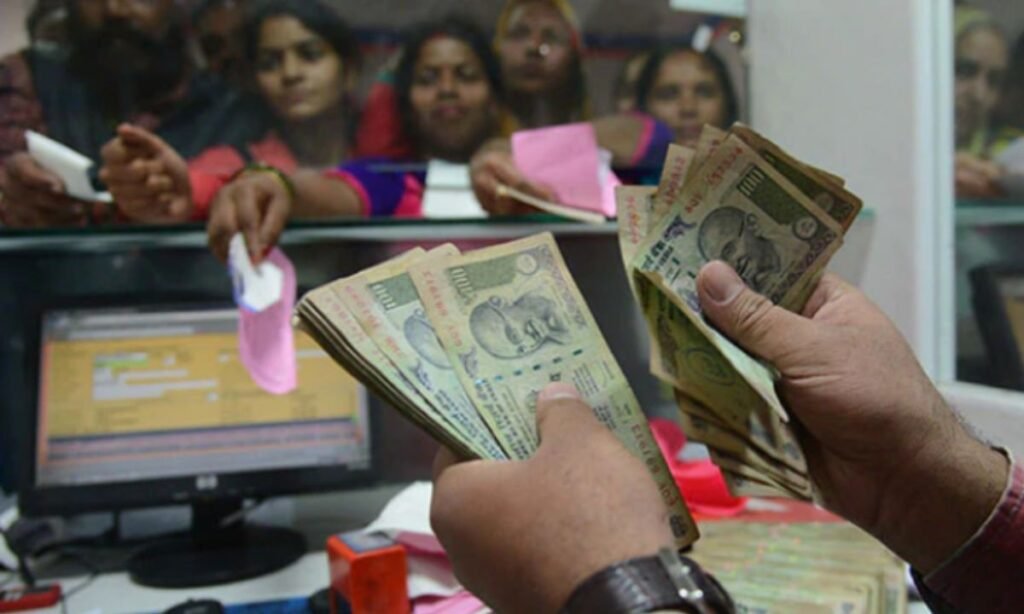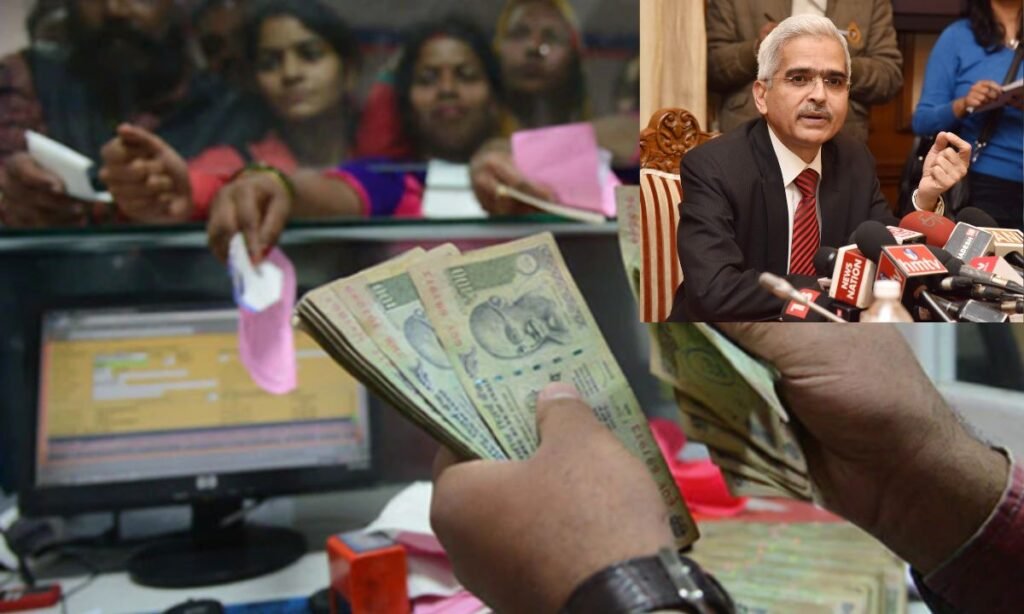Cash Deposit Rule: The majority of people in India deposit their earnings into their personal bank accounts. People put money in banks because they know it is safe and secure there. The Reserve Bank of India, or RBI, is our nation’s central bank and periodically releases new regulations pertaining to banks.
However, a WhatsApp message that has been making the rounds for the past several days claims that the Reserve Bank of India, or RBI, has announced new guidelines that apply to all bank account users. This regulation states that bank account holders’ accounts would be canceled if they deposit more than Rs 30,000.

However, a lot of people are unable to distinguish between the truth and lies in this widely circulated message, so in today’s post, we’ll learn the reality behind it and learn about the Cash Deposit Rule.
This is the truth of the viral message
The news that our nation’s RBI Governor, Shaktikanta Das, has released new Cash Deposit Rules for all bank holders—which state that if any account holder holds more than Rs 30,000 in his bank account—has been making the rounds on WhatsApp for a while. A person’s bank account will be closed if they make a deposit.

However, this is a false viral message that is not real at all. You don’t have to believe this because the RBI Governor hasn’t released any new rules of that kind. You are not subject to any additional regulations from the RBI regarding the amount of money you can deposit in your bank account.
According to RBI these are the Cash Deposit Rules
If we were to inform you the RBI’s rules about bank account deposits, we would have to say that if more than Rs 10 lakh is put in a savings account in a year, then the account should not accept deposits of that amount in the future. Thus, they have to report this to the tax authorities.
Regarding your present bank account, there is no cap on the amount you can deposit; nevertheless, you will need to provide information about all of those transactions when filing your ITR file.

PIB also did Fact Check
In order to prevent panic from spreading, the Press Information Bureau (PIB) also verified the information in this widely shared message. This communication has also been deemed to be fraudulent by Fact Check of PIB, who have provided this information on their Twitter account.
PIB tweeted after fact-checking this post, stating, “According to news reports, the governor of the Reserve Bank of India has issued a significant announcement regarding bank accounts, saying that any account holder who has more than Rs 30,000 will have their account canceled.
Additionally, PIB stated in the tweet that there is no need to believe such messages since “This news is completely fake, RBI has not taken any such decision.”
एक ख़बर में दावा किया जा रहा है कि भारतीय रिजर्व बैंक के गवर्नर ने बैंक खातों को लेकर एक अहम ऐलान किया है कि अगर किसी भी खाताधारक के खाते में 30,000 रुपये से ज्यादा है तो उसका खाता बंद कर दिया जाएगा#PIBFactCheck
— PIB Fact Check (@PIBFactCheck) June 15, 2023
▪️ यह ख़बर #फ़र्ज़ी है।
▪️ @RBI ने ऐसा कोई निर्णय नहीं लिया है। pic.twitter.com/dZxdb5tOU9
This is how PIB gets fake messages investigated
Aside from this, you can get any other message or news that you are unsure about verified by the Indian agency PIB. To do this, visit their website at pib.gov.in, or send them the phony message or news over WhatsApp at +918799711259.
After that, PIB will verify the veracity of the news or communication and notify you. We hope that reading this post has given you more knowledge regarding the Cash Deposit Rule and the real reason behind the message’s viral nature. Visit our website often to read more stories like this one.
